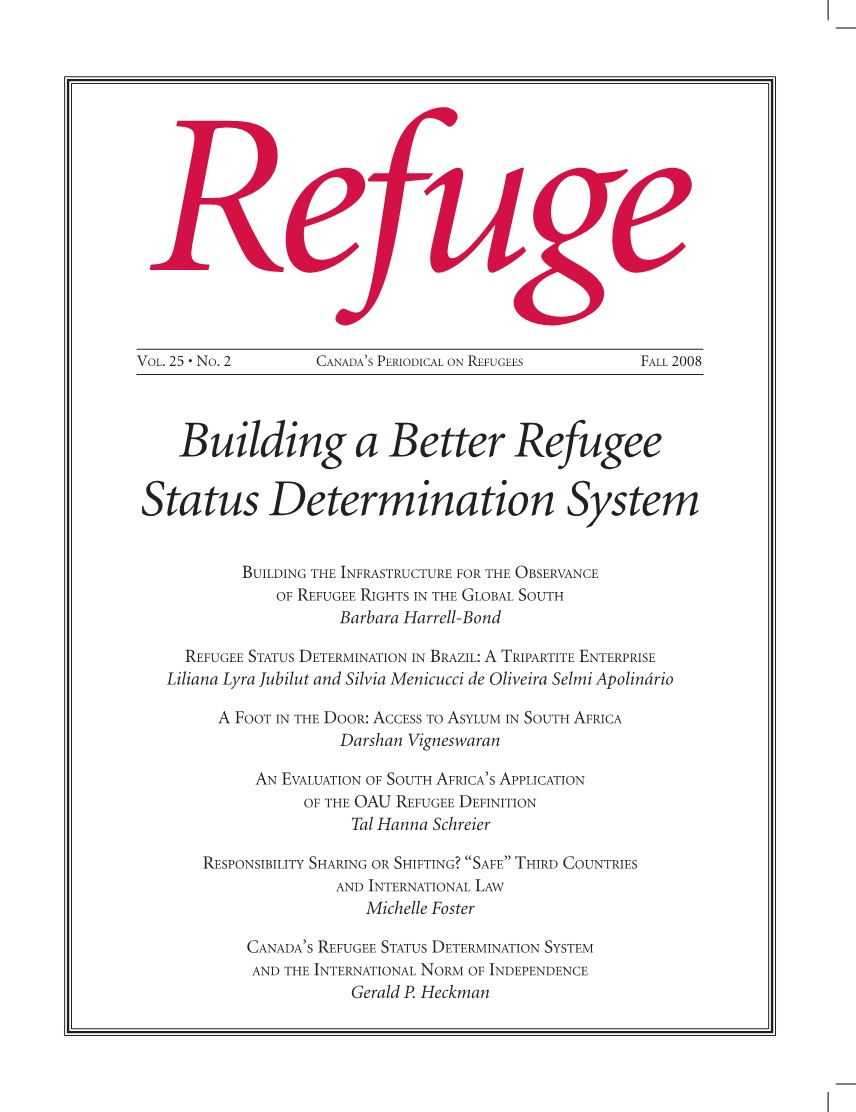Abandoning Refugees? An Analysis of the Legal Framework Governing Non-compliant Claimants in Canada
DOI:
https://doi.org/10.25071/1920-7336.26036Keywords:
Canada, refugee status determination, refugee claimants, law, abandonmentAbstract
The refugee status determination (RSD) process in Canada, like the RSD processes of other states, currently rejects one in fifteen refugee claims based upon the non-compliance of refugee claimants with the rules of the process. Most commonly this is due to a claimant’s failure to provide requested information or his or her failure to attend a scheduled hearing. These “abandonment” decisions result in the expedited removal of claimants without access to further review. Despite the drastic consequences of such decisions, the framework within which they are made neither has been comprehensively outlined nor has its application been catalogued, which is the aim of this paper. It argues that while the formal provisions of the domestic framework are both inconsistent with international law and in excess of the delegated authority through which it is constructed, the Court’s application of the framework has been generous to refugee claimants.Metrics
Downloads
Published
How to Cite
Issue
Section
License
Copyright (c) 2008 Martin Jones

This work is licensed under a Creative Commons Attribution-NonCommercial 4.0 International License.
Refuge authors retain the copyright over their work, and license it to the general public under the Creative Commons Attribution-Non Commercial License International (CC BY-NC 4.0). This license allows for non-commercial use, reproduction and adaption of the material in any medium or format, with proper attribution. For general information on Creative Commons licences, visit the Creative Commons site. For the CC BY-NC 4.0 license, review the human readable summary.







